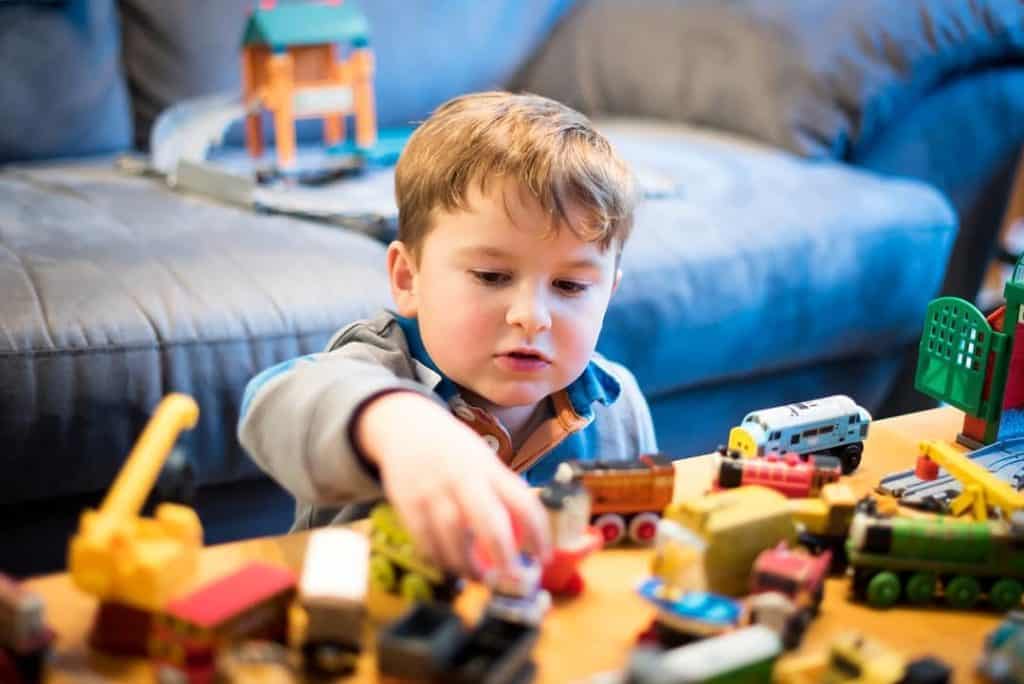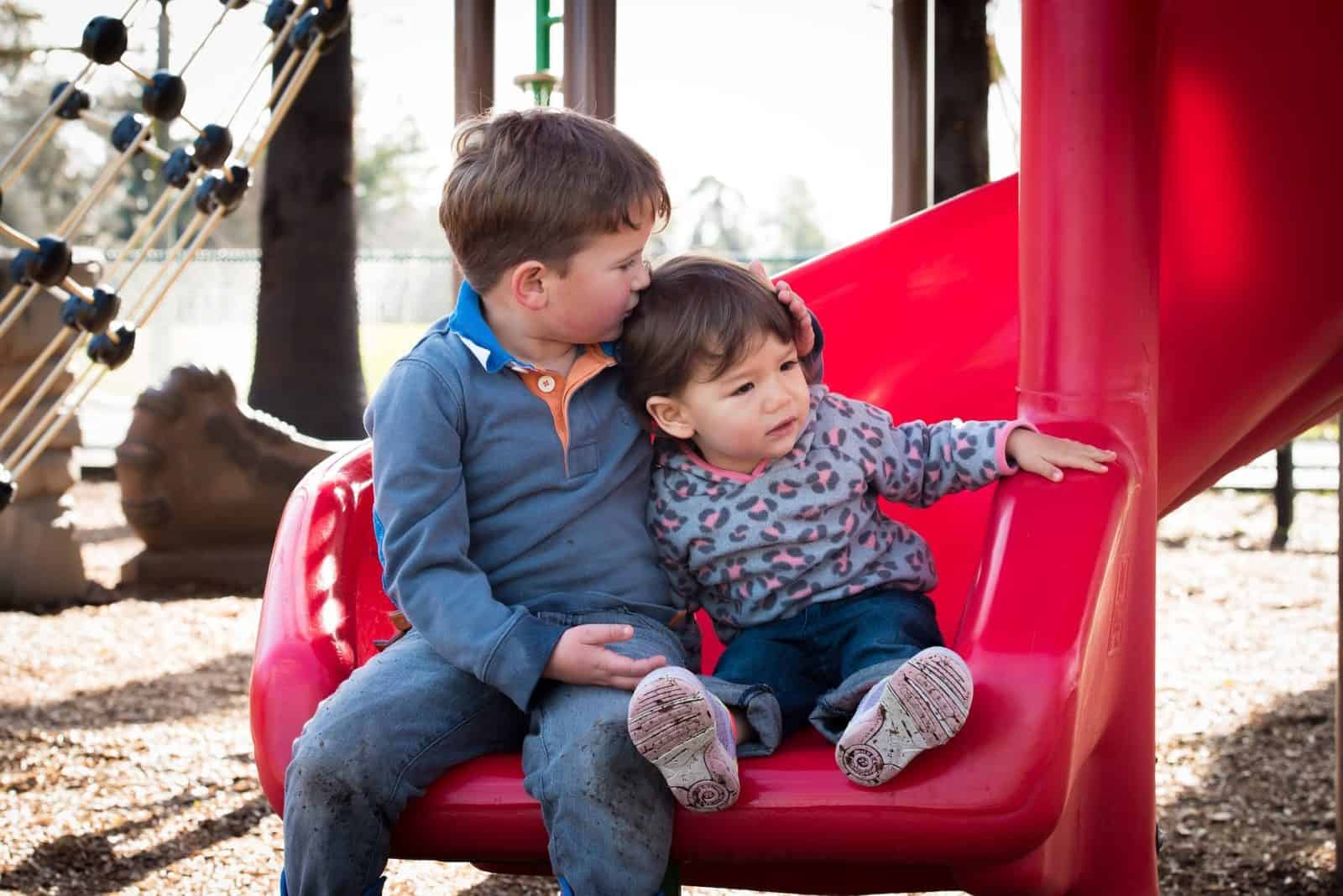It’s so cute when a 3-year old boy wears a team jersey and cheers for his dad’s team. It’s adorable when a 4-year old girl wears mom’s shoes and carries her purse around the house. Imitating the behaviors of adults and other children is commonplace from infancy through adulthood. It’s amazing how much children learn from watching others. Ensuring children are around positive role models and childcare providers will help them learn a vast array of social skills.
As a nanny, you spend a lot of time with children. These children look to you and will learn from your words, actions, and behaviors. If you haven’t yet, consider investing in professional nanny training and certification. Here are 8 things to consider when you are working with children:
1. Lead by example.
When you are driving and another car cuts you off, it is often tempting to yell at the other driver. If there are children in the car with you, think about the message you are sending to them. You don’t really want them to think it’s okay to shout or say mean things to others. Instead, keep the words of annoyance and frustration in your head. Speak to the children and share that the person driving the other car made a bad choice or a mistake and that you are going to focus on making good choices. This teaches accountability and independent decision making.
2. Listen to children.
Children see the world in wonderful and surprising ways. Because of their curiosity, they often see things that adults overlook. It’s easy as an adult to ‘half-listen’ when a child is sharing something with you. Instead, focus on what the child is saying and ask questions to really understand what the child is thinking or trying to communicate. This teaches children that what they say is important to you. It also teaches them active listening and social skills. Adults can also benefit from this as they often see things from a different, and sometimes a more interesting perspective.
3. Use positive re-enforcement.
Caregivers can get into the habit of saying “No” a lot. Of course, in a situation where the child may get hurt – “No” is important and children must be kept safe. But if you find yourself saying “No” to everything – you may want to rethink your approach. If Johnny wants to go outside and it’s raining – instead of just saying “No’, you may want to say “Johnny, it’s raining so we can’t go outside right now. Would you rather play with your blocks or train set?” If you get down to Johnny’s level with open body language and a pleasant voice – Johnny will most likely choose one of the options and begin to play. If you encourage his selection and comment on how nicely he is playing, everyone has a better day!
 4. Creative and positive outlets.
4. Creative and positive outlets.
Everyone has stress in their lives. Having a way to manage stress positively is important for childcare providers and children. When you are feeling stressed, don’t be afraid to show children how you handle it. Let them see you taking a few deep breaths or jogging in place. When you recognize stress in children, help them cope by doing deep breathing exercises with them, or playing soft music, or running with them to let off steam. Children who learn stress coping techniques will fare better at handling adult stresses later in life.
5. Be confident.
Children want to feel safe and secure and if they think an adult is scared or unsure, then they may feel insecure or anxious. In day to day interactions, using a strong voice and clear sentences conveys confidence. If you tend to talk out loud to yourself and you say, “I wonder if we have food for lunch”, it may make a younger child worry about their next meal even if the kitchen is fully stocked. Watch what you say and think about how a child might interpret it. If you are thinking about lunch, ask Sally if she wants a sandwich or chicken for lunch instead of wondering what is available. This provides Sally confidence there is food and empowers Sally in the decision-making process.
6. Be Respectful of others.
Being disrespectful is often easy to see in others but harder to see in ourselves. The grimace on our face when we disagree with someone on the news or the comment about the woman in line who is wearing too much perfume are both behaviors that will be mimicked by children. To teach positive behaviors, we need to exhibit them, so this means saying please, thank you, and excuse me to others. It also means paying attention to our body language. When our words differ from our actions, children get confused.
7. Positive relationships.
Children will learn how to build relationships with family, friends, and future romantic partners based on their relationships as children. If a family hugs and freely shares their feeling, then children will be comfortable with these behaviors. If friends are treated kindly and show understanding and forgiveness, then children will be better able to adopt these traits.
8. Be humble and kind.
Teaching children about charity and kindness can help them see past their daily needs and understand more about our world and the power of working together. Children watch our daily interactions with others and we need to make sure they learn humility and politeness. Holding the door for the next person to enter a building, giving up your seat on a bus or subway car, and smiling at people you meet are all ways to show a child how to be a better person.
While it is incredibly rewarding to work with children, it also has important responsibilities including role model behaviors. As young children learn by watching others, it’s important to demonstrate the behaviors you want children to mimic and learn. If you want children to be patient, then show them how to patiently wait for an appointment to help them learn this skill. From fist-pumping when our favorite football team scores a goal to calming an upset friend, children will mimic you. Take a few minutes to think about how you can use this to your (and their) advantage.
For more information about role model behaviors for childcare providers, a Professionalism course is available within the Basic Childcare Certification from the Nanny Institute.
About the Author. Karli Ortmann is a professional nanny with over 8 years of experience and is currently earning a Master of Art in Counseling from Chicago Professional School of Psychology. Karli is also an adjunct faculty member of the Nanny Institute, an organization dedicated to professional training and certification of elite Nannies, Au Pairs, Babysitters, and other childcare providers.


Recent Comments